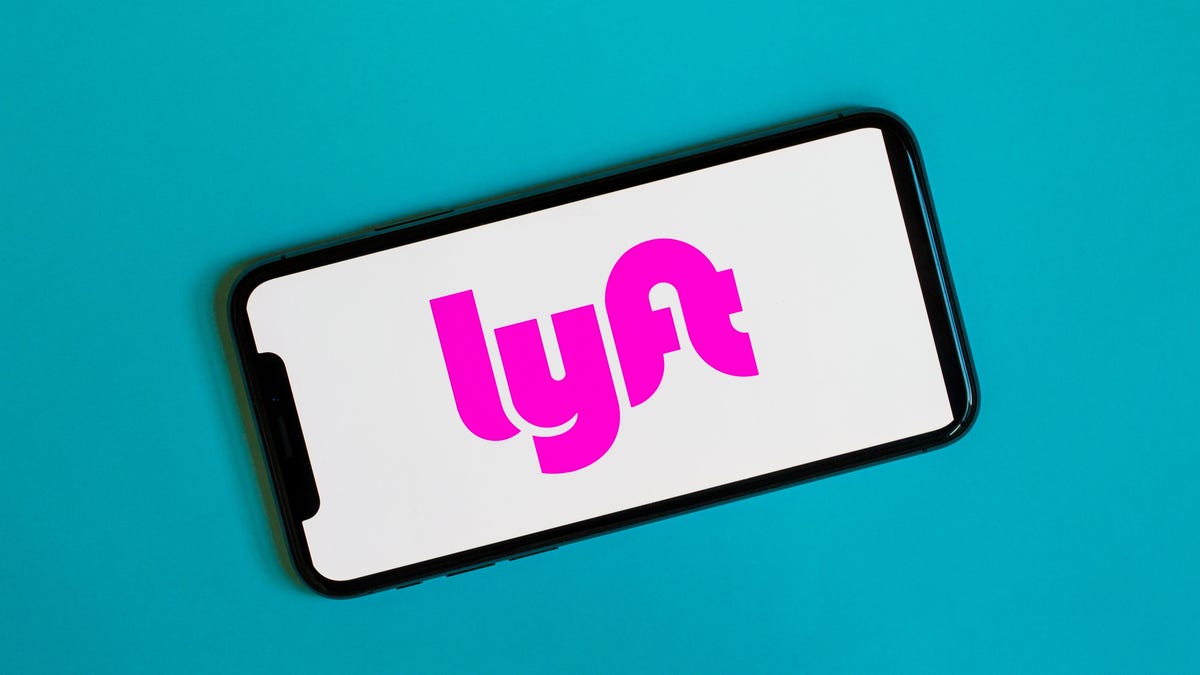Lyft's first-quarter earnings show impact of coronavirus, but a rise in revenue
The ride-hailing company says its rides business was down by as much as 75% in April.

Lyft's earnings didn't fully reflect its coronavirus problems.
The past few months have been shaky for Lyft. The ride-hailing giant's business has been curbed by the coronavirus, and the company has responded with layoffs. On Wednesday, however, Lyft's first-quarter earnings didn't fully reflect those problems.
Lyft reported its revenue rose 23% since the same time last year to $995.7 million, beating analysts' expectations of $897 million. But the company posted a net loss of $398.1 million for the quarter, which was greater than expected though narrower than its losses during the same time last year.
"While the COVID-19 pandemic poses a formidable challenge to our business, we are prepared to weather this crisis," Lyft CEO Logan Green said in a statement. "We are responding to the pandemic with an aggressive cost reduction plan that will give us an even leaner expense structure and allow us to emerge stronger."
The coronavirus shook the entire economy during the first quarter of the year, which ended on March 31. Most companies saw an impact on their business as the virus took hold. But companies in the travel and tourism industries, like Lyft, Uber, Airbnb, hotels and airlines, experienced a precipitous drop in business and their stock prices. Lyft saw its stock price drop 73% from $53 in mid-February to $14 by mid-March.
In after-hours trading, Lyft shares rose 15% to $30 after the company report.
Unlike its rival Uber, which has diversified its business with several different offerings, Lyft has long touted itself as being solely focused on transportation. The strategy, which the company recently retooled, has proven to be its Achilles' heel during the coronavirus pandemic. It's seen its volume of rides plummet because of shelter-in-place orders taking effect across the country.
Green said on an earnings call with investors on Wednesday that Lyft's rides were down by as much as 75% in mid-April. But rides have come up slightly since that low point, he said. The company saw a 3% increase in ridership from the same period last year, going from 20.5 million active riders in the first quarter of 2019 to 21.2 million in 2020. But it's likely those numbers will drop in the second quarter of this year as shelter-in-place orders remain throughout much of the US.
"The virus is testing our everyday way of life and has had a profound effect on our business," Green said. "These are the hard truths we're facing."
In March, Lyft rolled out a series of new programs that weren't explicitly focused on transportation, such as a pilot program for delivering medical supplies and test kits to senior citizens and other vulnerable populations. It also piloted a meal delivery program and partnered with Amazon to provide the retail giant with delivery drivers.
On the earnings call, Lyft's Chief Financial Officer Brian Roberts said the company has "no interest in launching a consumer food delivery service." But, with these delivery endeavors, Lyft is positioning itself as "essential" during the crisis.
"We know Lyft can be a critical lifeline for communities in need," the company wrote in a March 20 blog post. "Right now, Lyft drivers are playing a vital role connecting people with essential services and goods -- getting riders to grocery stores and pharmacies, doctors and nurses to work, and caretakers to family members in need."
Still, it's unclear how much these measures are helping the company. Last week, Lyft announced it was laying off 17% of its staff, a total of 982 employees, and furloughing another 288 people.
On Wednesday, Uber said it was also cutting its workforce by 14%, letting go of 3,700 employees. Uber is expected to announce it's first quarter earnings on Thursday.

